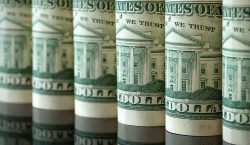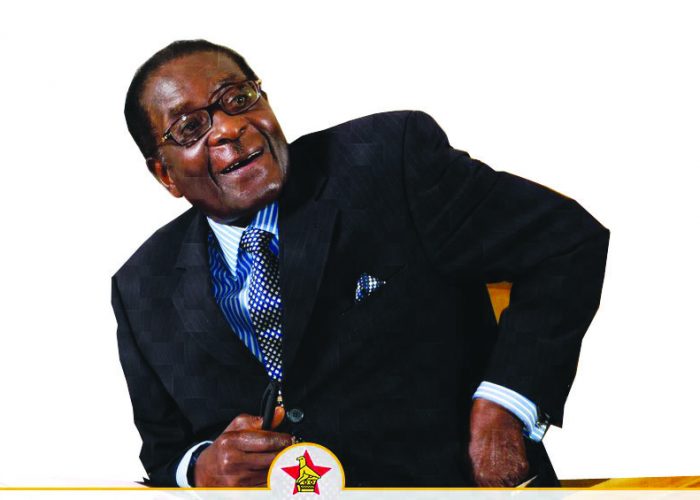


 PRESIDENT Robert Mugabe turned 90 years old last Friday, marking yet another milestone in a long carrier marking him out as a veteran of local and global politics. And as he walks into the sunset of his political career, the ZANU-PF leader is seen through different lenses. To admirers, he is a liberator while critics brand him undemocratic.
PRESIDENT Robert Mugabe turned 90 years old last Friday, marking yet another milestone in a long carrier marking him out as a veteran of local and global politics. And as he walks into the sunset of his political career, the ZANU-PF leader is seen through different lenses. To admirers, he is a liberator while critics brand him undemocratic.
These tags combine to confuse his legacy as some would prefer to look at him as an emancipator while others think otherwise. With such contrasting opinions, historians, biographers and political scholars are also likely to subject his legacy to many different interpretations. But whichever one’s political or life’s station, it is not in doubt that President Mugabe’s major achievement remains that he led ZANU-PF in liberating the country. His earlier push for reconciliation and expansion of education as well as health services to areas and populations neglected by the Ian Smith regime were fairly successful.
One other thing that President Mugabe will be remembered for are his efforts to change the structure of participants in the economy. Though contestable, there seems to be a significant change in economic players as a result of the land reform and indigenisation programmes. About 88 000 new tobacco farmers have been registered to grow the golden leaf this year and the number has been increasing since the start of the land reform programme around 2000, transforming the lives of beneficiaries in the process.
But some of those achievements were mixed with disastrous mistakes here and there, most notably ZANU-PF’s penchant for destructive populist policies. Price controls and the writing off of debts owed to local authorities and the power utility, ZESA Holdings, as well as the periodical dishing out of freebies, with far reaching consequences on the economy, are some of the grave blunders of his times. Still critics argue that perhaps the biggest dent on his legacy is his overstaying in power and failure to groom a successor.
His uninterrupted rule since 1980 has over the years seen attempts being made both from within and outside ZANU-PF to oust him on grounds that he has overstayed.
an interview with the national broadcaster to mark his 90th birthday last week, President Mugabe confirmed that some of his comrades had plotted against him. As far back as 1998, the internal battle to dislodge him saw the current Minister of Energy and Power Development Dzikamai Mavhaire telling Parliament while moving a constitutional review motion that: “the President must go.”
“One scholar I read just yesterday wrote many years ago that the ‘problem of presidency in Africa is that founding presidency ultimately becomes a presidential monarchy,” Mavhaire said then. “We believe that we are not a monarchy, we are a government. Honourable members will agree with me that we must remain a democratic republic. What I am proposing is that the President must go.”
ZANU-PF’s then Mkoba lawmaker, who is also currently Zimbabwe’s ambassador to China, Fredrick Shava seconded Mavhaire’s motion saying the President must not continually “succeed himself”. Shava went on to say that Zimbabweans must “not turn individuals into institutions by prolonged longetivity of their terms of office.” Sixteen years after Mavhaire’s Parliamentary declaration and 33 years after taking over at independence, attempts to dislodge him have proved to be in vain. In December 2007, when President Mugabe was endorsed as his party’s presidential candidate for the following year’s general polls, some disgruntled ZANU-PF members argued that his candidature was irregular, culminating in Politburo member Simba Makoni standing as an independent Presidential candidate.
Makoni had the backing of another former senior ZANU-PF member Dumiso Dabengwa before the two fell out, resulting in the latter opting to revive ZAPU, which he now leads.
Before that, WikiLeaks cables also revealed that as the country’s economic and political crisis deepened after 2006, Dabengwa and the late former army general Solomon Mujuru had pressured President Mugabe to stand down. Foreign presidents such as George Bush and Tony Blair attempted to get rid of him,but they themselves are no longer in power. In many other instances, President Mugabe has outlived his political foes, marking him out as the great survivor.
Even opposition politicians such as Morgan Tsvangirai have failed to oust him, with the latter’s leadership of his party now standing on shaky ground, while his rival is safely ensconced in the seat of power. But why has it proved to be such an uphill task to dislodge the ZANU-PF leader? Political analyst, Ricky Mukonza, said another point to consider is that those who have competed with him have proved to be of lesser quality in terms of eloquence and clear articulation of their party positions. “Even at an advanced age he still displays mental capabilities that defy his age,” Mukonza postulated.
In a 2007 WikiLeaks cable, former American ambassador to Zimbabwe Christopher Dell described the ZANU-PF leader as a “brilliant tactician” and Tsvangirai as “a flawed figure, not readily open to advice, indecisive and with questionable judgment in selecting those around him.” But that aside, the ZANU-PF leader has in some cases used his control of the security apparatus to gain an advantage over his political rivals.
Opposition leader and founding Movement for Democratic Change secretary for security, Job Sikhala believes that the military’s influence has in some respects shaped the political course of the country. “(President) Mugabe has always been a political tactician since the time of the liberation struggle. If you listen to his speeches after he took control of ZANU in the late 1970s, he was demanding total independence built around a strong securocrat. He said he will not accept any offer of independence without total control of the security services,” said Sikhala.
“Thereafter, he was able to build a strong security sector with absolute loyalty to him. His total grip in that sector gives him a mile advantage than any other competitor against him.” Over the years, President Mugabe has also been successful at strategic recruitment and cooptation, sometimes even using patronage to lure some of his harshest critics to help him consolidate his power. Among those who are back in the fold are Mavhaire who is now a minister and Shava, a diplomat.
Another fierce critic, Information, Media and Broadcasting Services Minister, Jonathan Moyo and the current ZANU-PF Masvingo lawmaker, Daniel Shumba, who once challenged President Mugabe for the presidency, are back in the fold. Political analyst, Gideon Chitanga, said those who cannot repent, without their own means for survival are left out to suffer in poverty.
“While Moyo is smart and extremely hard working, the majority of his former critics like Mavhaire were brought back in line with ZANU-PF’s politics of ethnic and factional balancing,” concluded Chitanga.